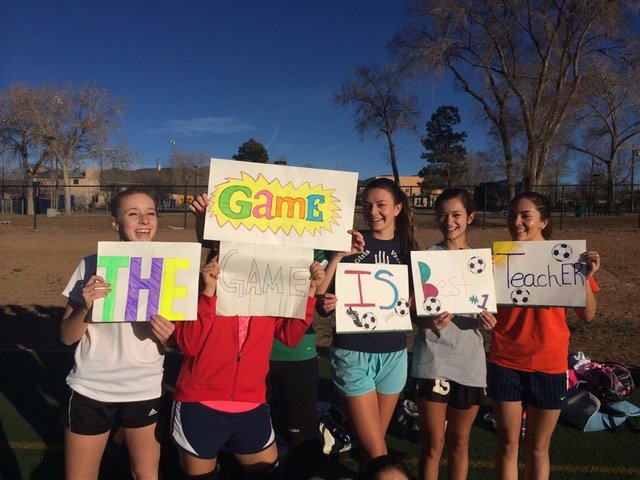
Let the Game Teach
Introduction
"After many years in which the world has afforded me many experiences, what I know most surely in the long run about morality and obligations, I owe to football." Albert Camus was a goalkeeper at Algeria RUA (junior division) until he was diagnosed with tuberculosis at 17.
When I got my first coaching job (high school soccer), my father, an ex-college boxer, called, congratulated me, and then told me to remember that coaching wasn't just about wins and losses, "X's and O's; it was about changing lives.
That stuck with me.
He said that sport was one of the best tools we had for learning life: how to be kind, competitive (they are not opposites!), determined, and tough.
Of course, all that lofty thinking was immediately challenged by more than a few kids who wanted me to quit focusing on life lessons and instead teach them how to score more goals or be a better defender. (Having a concrete "goal" is, of course, also a life lesson)
Despite my sixteen-year-old critic's desires, this set of blogs is dedicated to that first proposition that sports are a training ground for life, personal and professional. For example, according to Fortune Magazine, 65% of female Fortune 500 executives played high school or collegiate competitive sport.
Move! or face the consequences
Next, this series' passionate "red-thread" is simple: we are better off as individuals when we move: Walk, run, play sports, swim, climb, bike: "get up and move!"
The late Sir Kenneth Robinson (1950-2020) was a British author, speaker, and international advisor to governments on education in the arts. He was also my favorite speaker at TED talks.
In his presentation, he spoke about how we've come to think about our bodies as simply a transport for our heads to take us from class to class or meeting to meeting. It's as if we are intentionally designing a path leading us to bulbous heads and atrophied bodies.
This is bad! And it is not how we evolved. We are animals, first and foremost. There is no dichotomy between "mind and body". It is one wholistic system. An insult to the brain is an insult to the body — and visa-versa.
Further, when we look at kids in school, there is overwhelming evidence that physical activity enhances academic performance. Sadly, one of the unintended consequences of test-based education is that more time is spent in classrooms prepping for tests. That time is often taken from physical education classes and recesses.
The Screen Abyss
Next, we have a near epidemic problem regarding screens and there spread and influence. Think about how much time we and our kids spend on screens. Hopefully, with awareness, the pendulum has swung as far as it can go, and it's swinging back to the middle to more rational use. What I worry about is a generation of kids that are staring instead of playing, addicted instead of running, and losing their minds (and thus their bodies) to social media and "gaming."
Back to Sports
While not for everyone (no magic bullets), sports, done well and inclusively, hold an answer. Again, there is a plethora of research about the benefits of youth sports. Yet, at the same time, participation numbers in many sports are declining.
Why is this so? The graph below of "Mom's concerns about sports" holds some answers:
This brings us back to our thesis. For sports to work their magic, they need to be less focused on winning (it's okay, my competitive friends, Breathe. It's all about how we understand what "competing" means.), safe, less expensive, and coaches need to hold to higher standards.
Finally, sports are fun! Fun is not the opposite of work or even hard work. It is not the opposite of competition. Yet "fun" can have negative connotations for coaches who want to win and for our goal-oriented, "work is life/life is work" society. I often use the idea of "learning passion" rather than "having fun" as the MO for sports. When we become passionate about something, we put in the time and work to play and get better.
So. I hope this series will provoke thinking about sports— as parents, coaches, and athletes. We face so many unknowns and so many crises. We face an epidemic of loneliness, estrangement, and insecurities.
Sports are not a distraction; they are part of the solution. The game is there, ready to teach. We just need to show up.
